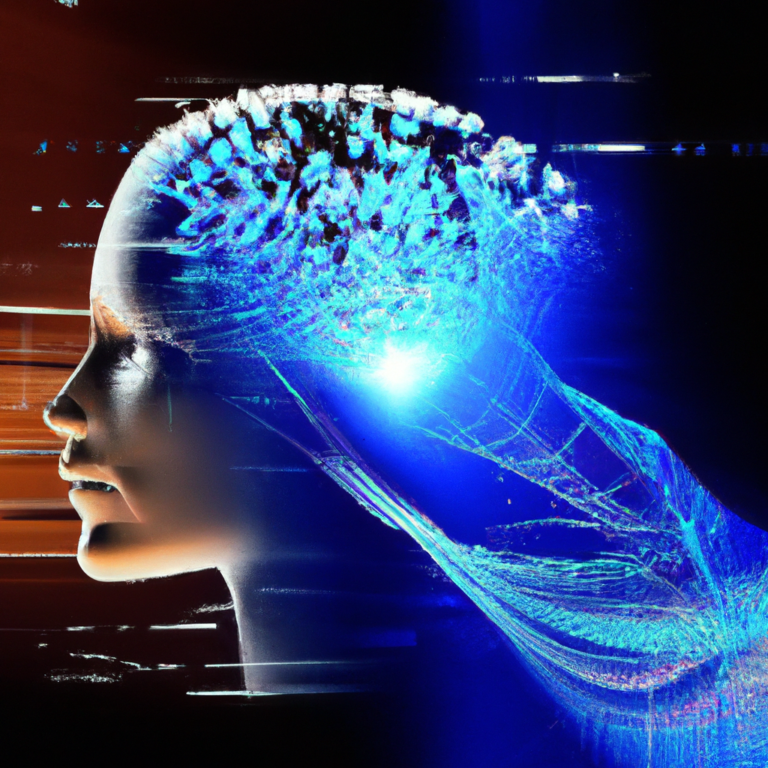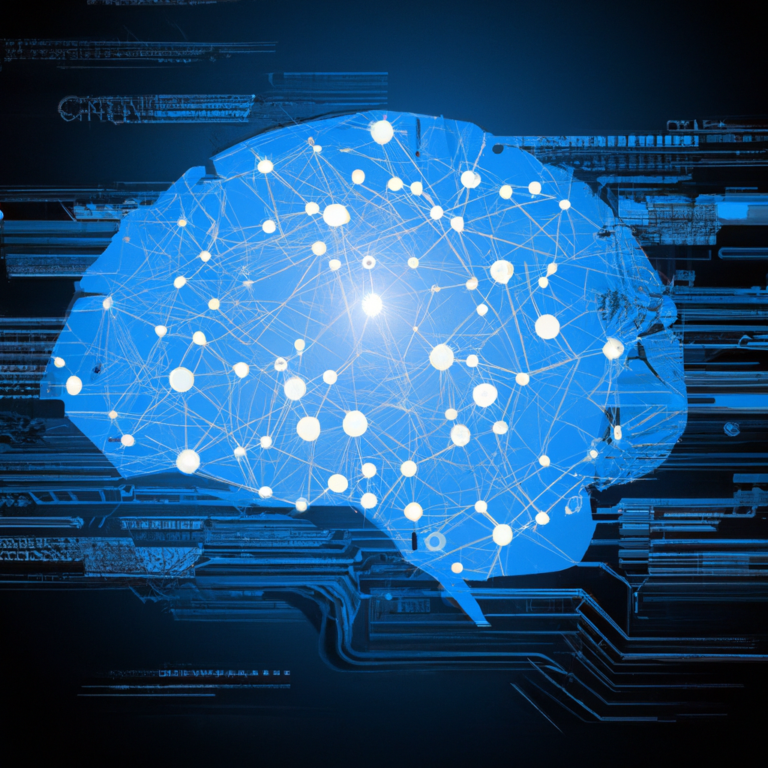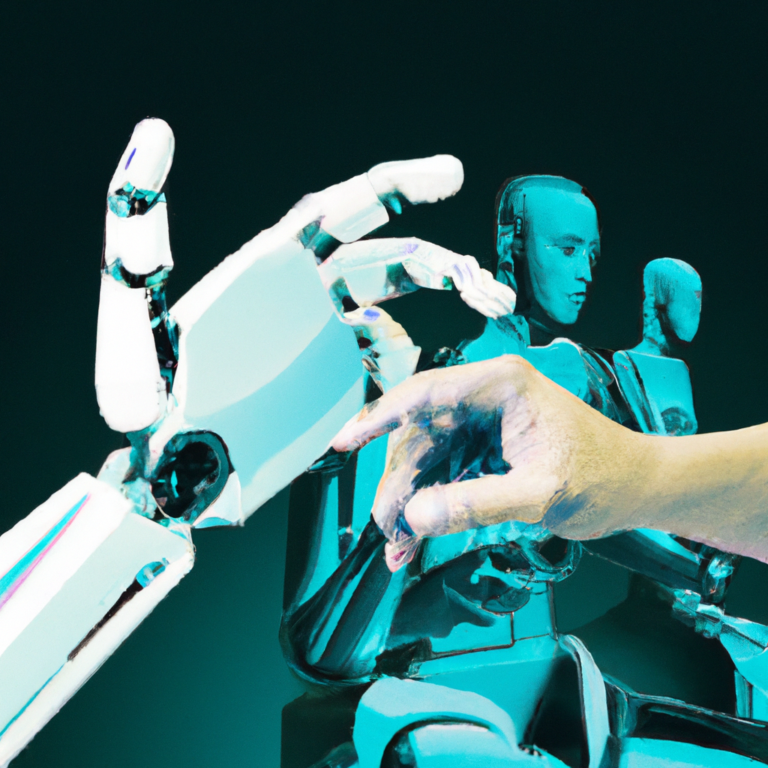AI In Healthcare
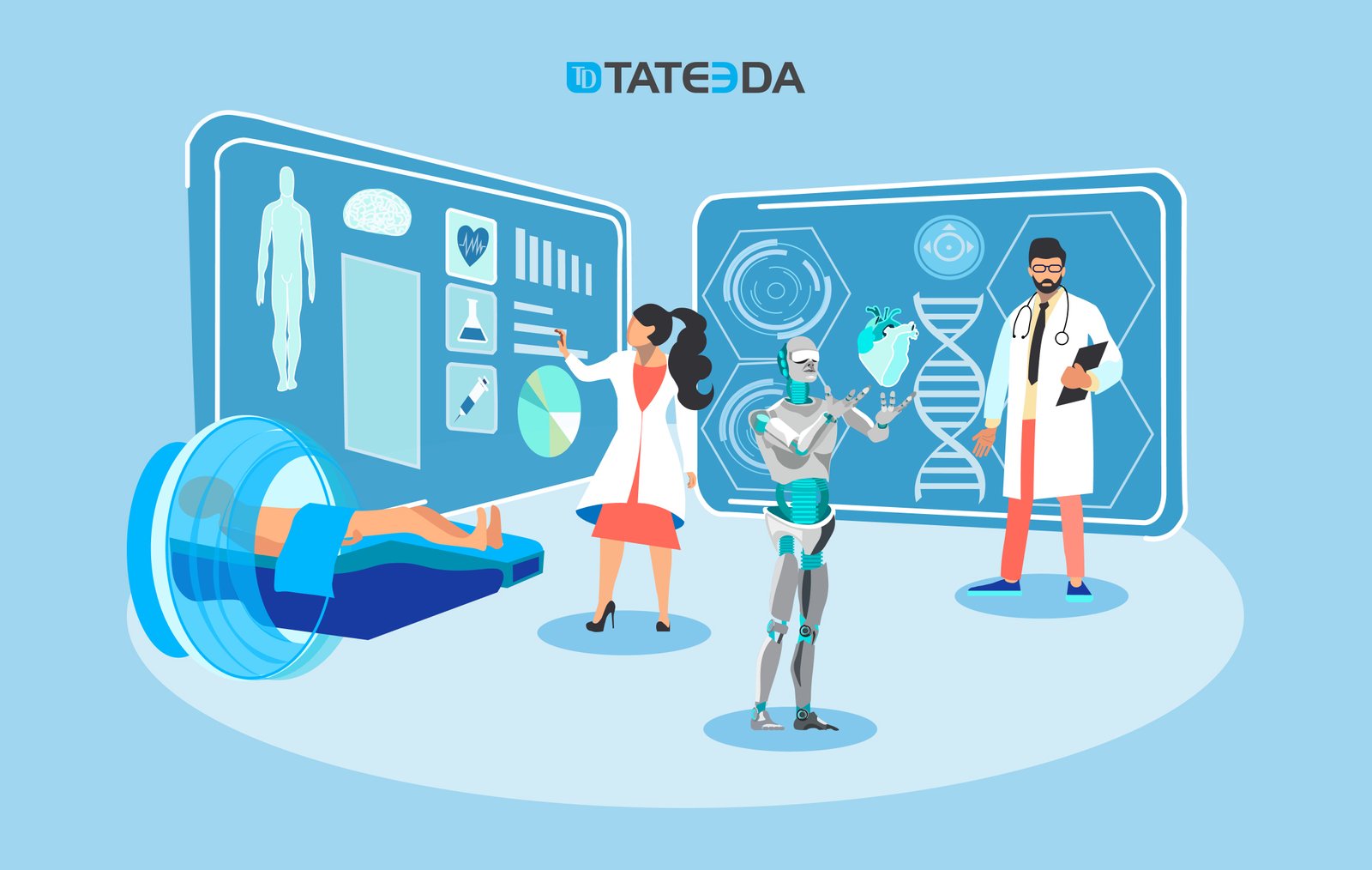
AI in Healthcare is revolutionizing the way we approach medical treatment and patient care. By harnessing the power of artificial intelligence, healthcare professionals are able to provide more accurate diagnoses, personalized treatment plans, and improved patient outcomes. From utilizing machine learning algorithms to analyze medical data and detect patterns, to virtual assistants streamlining administrative tasks, the integration of AI in healthcare is enhancing efficiency, reducing costs, and saving lives. With the immense potential AI holds for transforming the healthcare industry, it is crucial that we embrace and leverage this technology to create a brighter future for medical care.
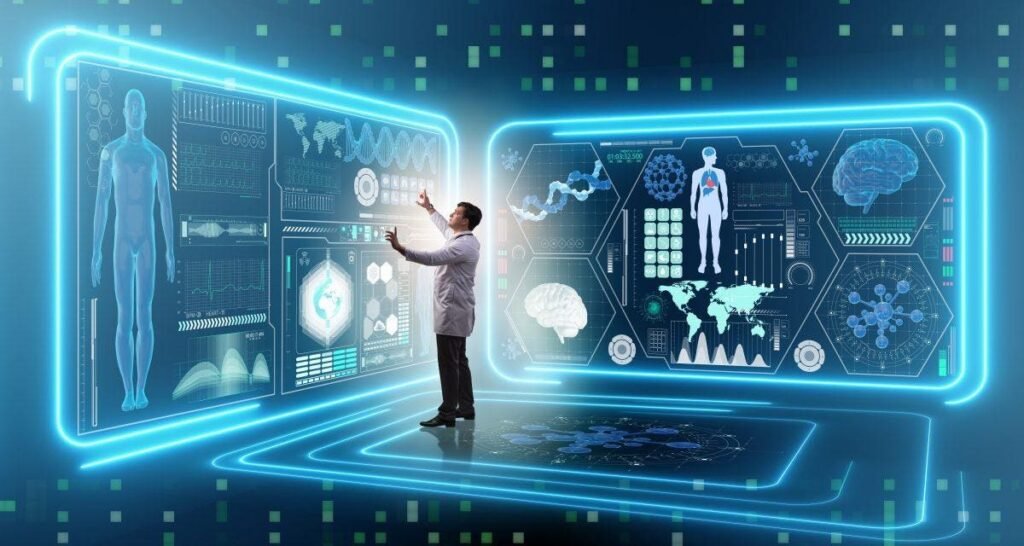
This image is property of imageio.forbes.com.
The Role of AI in Healthcare
Artificial Intelligence (AI) has revolutionized numerous industries, and healthcare is no exception. The integration of AI technology has brought significant advancements to diagnostics, treatment, patient care, and medical research. By leveraging the power of AI, healthcare providers can enhance the quality of healthcare services, improve patient outcomes, and streamline administrative tasks. Let’s explore the various ways AI is transforming the healthcare industry.
Improving Diagnostics and Treatment
Automated Image Analysis
One of the remarkable applications of AI in healthcare is automated image analysis. AI algorithms can quickly and accurately analyze medical images, such as X-rays, CT scans, and MRIs, to identify abnormalities or detect diseases. This technology not only expedites diagnosis but also reduces human error, ensuring more precise and reliable results. With automated image analysis, healthcare professionals can make informed treatment decisions promptly, leading to better patient outcomes.
Clinical Decision Support Systems
AI-powered clinical decision support systems assist healthcare providers in making evidence-based treatment decisions. These systems integrate patient data, medical records, and the latest medical research to generate treatment recommendations. By considering a wide range of factors, such as the patient’s medical history, symptoms, and risk factors, clinical decision support systems can provide personalized treatment plans. This not only improves the quality of care but also reduces the chances of medical errors and adverse events.
Early Disease Detection
Early detection of diseases can significantly impact treatment success rates and patient outcomes. AI algorithms can analyze vast amounts of patient data, including medical records and diagnostic test results, to identify patterns and indicators of various diseases. By spotting early warning signs, AI can help healthcare providers intervene at the earliest stages of a disease, increasing the chances of successful treatment outcomes and potentially saving lives.
Personalized Treatment Plans
Every patient is unique, and their medical conditions should be treated accordingly. AI enables the development of personalized treatment plans. By integrating patient data, genetic information, and medical knowledge, AI algorithms can analyze vast datasets to identify the most effective treatment strategies for individual patients. This personalized approach to treatment increases treatment efficacy, minimizes side effects, and optimizes patient outcomes.
Enhancing Patient Care and Experience
Virtual Nursing Assistants
To provide 24/7 support and enhance patient care, virtual nursing assistants have emerged as a valuable AI application. These AI-powered assistants can respond to patient queries, provide medication reminders, and offer guidance on treatment plans. By leveraging natural language processing and machine learning algorithms, virtual nursing assistants ensure patients have access to reliable information and personalized assistance whenever needed. This technology not only improves patient satisfaction but also reduces the burden on healthcare professionals, allowing them to focus on critical tasks.
Chatbots and Virtual Medical Assistants
AI-powered chatbots and virtual medical assistants play a significant role in enhancing patient experience. These interactive tools can provide instant medical information, answer frequently asked questions, and offer guidance on self-care measures. Patients can access these chatbots or virtual assistants through web-based platforms or mobile applications, making healthcare information readily available at their fingertips. Consequently, patients can take better control of their health, make informed decisions, and easily access medical advice, even when healthcare providers are unavailable.
Remote Patient Monitoring
AI has transformed how patient monitoring is conducted, allowing healthcare providers to remotely monitor patients’ health conditions. With the help of wearable devices and sensors, AI can continuously collect and analyze patient data, such as vital signs, activity levels, and sleep patterns. This technology enables healthcare professionals to detect changes in patients’ conditions in real-time, allowing for early intervention and proactive healthcare management. Remote patient monitoring not only enhances patient safety but also reduces hospital readmissions and improves overall healthcare outcomes.
AI-powered Triage Systems
Emergency departments often face overcrowding and long waiting times, leading to delayed care for patients. AI-powered triage systems offer a solution to this problem by leveraging machine learning algorithms to accurately assess the severity of patients’ conditions. These systems consider various factors, including symptoms, vital signs, and medical history, to prioritize patients based on the urgency of their medical needs. By efficiently triaging patients, healthcare providers can allocate resources more effectively and ensure that critical cases are attended to promptly, thus improving patient outcomes.
Streamlining Administrative Tasks
Automated Medical Coding
Medical coding is a critical administrative task that involves translating medical diagnoses, treatments, and procedures into universal codes for billing and documentation purposes. AI can streamline this process by automating the medical coding process, reducing the need for manual intervention. AI-powered coding systems can analyze medical records and clinical documentation to accurately assign appropriate codes, ensuring accurate and timely billing. This not only speeds up administrative processes but also minimizes coding errors, leading to more efficient revenue cycles and reduced healthcare costs.
Optimizing Hospital Workflow
AI technology can optimize hospital workflow by streamlining various administrative tasks. Intelligent algorithms can automatically assign patient beds, schedule surgeries, and allocate resources based on patient needs and hospital capacity. By automating these processes, AI reduces the time healthcare providers spend on administrative tasks, allowing them to focus more on patient care. This leads to improved efficiency, increased productivity, and enhanced patient satisfaction.
Billing and Claims Management
Billing and claims management can be a complex and time-consuming process. AI can simplify this task by automating the billing and claims management process. By analyzing medical records, insurance policies, and healthcare regulations, AI algorithms can accurately generate bills, handle claim submissions, and perform insurance verification. This reduces paperwork, accelerates reimbursement processes, and minimizes billing errors, ensuring a smooth financial workflow for healthcare providers.
Scheduling and Appointment Systems
Scheduling appointments efficiently is crucial for healthcare facilities to optimize their resources and provide prompt care to patients. AI-powered scheduling and appointment systems can analyze various factors, such as patient preferences, availability of healthcare professionals, and required resources, to optimize appointment scheduling. By minimizing scheduling conflicts and efficiently managing appointment slots, these systems reduce patient waiting times and healthcare provider workloads. This leads to better patient satisfaction and improved healthcare delivery.
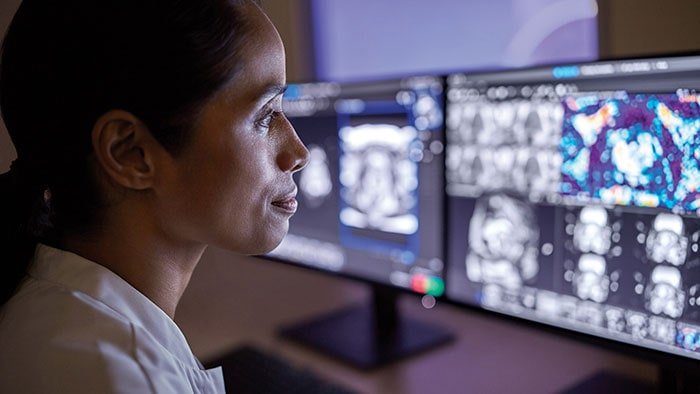
This image is property of www.philips.com.
Enabling Precision Medicine
Genomic Analysis and Interpretation
Precision medicine aims to provide tailored medical treatments based on an individual’s unique genetic makeup. AI plays a significant role in enabling precision medicine by analyzing vast genomics datasets to identify associations between specific genetic markers and diseases. AI algorithms can identify genetic variations that may impact treatment response, allowing healthcare providers to develop personalized treatment plans based on the patient’s genetic profile. This approach maximizes treatment efficacy and minimizes adverse effects.
Identification of Biomarkers
Biomarkers are measurable indicators of biological states, such as diseases or responses to treatment. AI algorithms can analyze extensive datasets to identify relevant biomarkers associated with specific diseases or treatment outcomes. This information helps healthcare providers diagnose diseases more accurately, monitor treatment responses, and determine treatment effectiveness. By leveraging AI to identify biomarkers, precision medicine approaches become more effective, allowing for targeted and personalized interventions.
Drug Discovery and Development
The process of drug discovery and development is lengthy, complex, and costly. AI has the potential to significantly accelerate this process by analyzing vast amounts of biomedical data, such as molecular structures, genetic information, and clinical trial results. AI algorithms can identify potential drug targets, predict drug interactions, and optimize drug formulations. By providing valuable insights and reducing the time and cost involved in drug discovery, AI enhances the development of new medications and improves patient access to innovative treatments.
Targeted Therapies
AI enables the development of targeted therapies by analyzing patient data, medical literature, and clinical trial results. By considering various factors, such as genetic variations, disease characteristics, and treatment responses of similar patients, AI algorithms can identify the most suitable treatment options for individual patients. Targeted therapies are designed to maximize treatment efficacy while minimizing adverse effects, offering patients personalized and precise interventions.
Empowering Medical Research
Data Mining and Analysis
AI has revolutionized the field of medical research by enabling efficient data mining and analysis. With access to large databases, AI algorithms can identify patterns, correlations, and associations within health records, clinical trials, and research publications. By analyzing these vast datasets, AI can assist researchers in identifying new disease relationships, possible risk factors, and potential novel treatments. By accelerating the research process, AI empowers medical professionals to make breakthrough discoveries and develop innovative healthcare solutions.
Clinical Trial Optimization
Clinical trials are critical in evaluating the safety and efficacy of new treatments. AI plays a vital role in optimizing clinical trials by assisting in participant recruitment, monitoring data quality, and predicting trial outcomes. AI algorithms can analyze vast patient databases and medical literature to identify suitable participants based on specific inclusion criteria, reducing the time and cost to recruit participants. Additionally, AI can identify data anomalies and predict trial outcomes, enabling researchers to make necessary adjustments to ensure successful trial results.
Identifying Patterns and Trends
Analyzing large datasets manually can be a daunting and time-consuming task. AI algorithms excel in identifying patterns and trends within complex datasets quickly. By analyzing vast amounts of patient data, medical records, and research publications, AI can unveil valuable insights into disease patterns, treatment effectiveness, and healthcare outcomes. These insights guide medical professionals in making informed decisions, improving patient care, and advancing medical knowledge.
Predictive Analytics
AI-powered predictive analytics can forecast disease trends and patient outcomes by analyzing vast datasets. By identifying patterns within medical history, demographic factors, and treatment plans, AI algorithms can accurately predict the likelihood of developing certain diseases or conditions. This information enables healthcare providers to take proactive measures, such as preventive interventions and targeted screenings, reducing the burden on healthcare systems and improving patient outcomes.

This image is property of www.ibm.com.
Managing Healthcare Resources
Optimizing Staff Allocation
AI helps healthcare facilities optimize staff allocation by predicting patient demand, considering workforce availability, and resource distribution. By analyzing patient data, historical trends, and factors such as admission rates and emergency department visits, AI algorithms can accurately predict staffing needs. These predictions enable healthcare providers to allocate staff efficiently, ensuring that the right professionals are available to provide timely care to patients, and minimizing the chances of understaffing or overstaffing.
Inventory Management and Supply Chain
Efficient inventory management and supply chain processes are essential for healthcare facilities to provide uninterrupted care. AI can optimize these processes by leveraging algorithms to predict factors such as equipment usage, medication needs, and supply expiration. By accurately forecasting these requirements, AI enables healthcare providers to maintain adequate stocks, reduce wastage, and ensure the availability of necessary resources when needed. This optimization leads to efficient resource utilization, cost savings, and enhanced patient care.
Demand Prediction
AI algorithms can accurately predict patient demand based on various factors, such as population demographics, environmental conditions, and disease trends. By analyzing historical data and real-time information, AI can anticipate future demand for healthcare services, allowing healthcare providers to allocate resources and prepare for potential surges. Accurate demand prediction enhances service delivery, reduces waiting times, and ensures that healthcare systems can effectively handle patient needs.
Resource Planning
Effective resource planning is crucial for healthcare facilities to provide optimal care. AI technology can analyze data from various sources, such as patient records, appointment schedules, and treatment plans, to create comprehensive resource plans. By considering factors such as patient needs, healthcare professional availability, and facility capacities, AI algorithms can generate detailed resource plans that optimize the utilization of healthcare resources. This leads to enhanced efficiency, improved patient flow, and better resource management.
Detecting and Preventing Diseases
Digital Disease Surveillance
Digital disease surveillance systems leverage AI algorithms to monitor vast amounts of data from numerous sources, such as social media, search engines, and public health records. By analyzing this data, AI can detect disease outbreaks, track disease spread patterns, and identify potential emerging diseases. This real-time monitoring enables healthcare authorities to take timely and targeted preventive measures, mitigating public health risks and minimizing the impact of diseases on communities.
Early Warning Systems
Early warning systems, powered by AI, assist in detecting and responding to potential health crises before they reach critical stages. These systems analyze various data sources, such as environmental data, population health records, and disease surveillance data, to identify signals of potential health emergencies. By continuously monitoring this data, AI algorithms can detect early warning signs and alert healthcare authorities to take appropriate actions promptly. Early warning systems enhance preparedness, improve response times, and save lives during public health emergencies.
Risk Prediction Models
AI aids in the development of risk prediction models to identify individuals at high risk for developing certain diseases or conditions. By analyzing various data sources, including medical records, genetic data, and lifestyle information, AI algorithms can spot patterns and risk factors associated with specific diseases. These models provide healthcare providers with valuable insights into individual patient risks, enabling proactive interventions, personalized preventive measures, and targeted screenings. Risk prediction models promote early intervention and preventative healthcare strategies, improving patient health outcomes.
Health Monitoring Wearables
The widespread use of wearable devices, such as fitness trackers and smartwatches, has transformed personal health monitoring. AI algorithms can analyze data collected by these wearables, including heart rate, sleep patterns, and activity levels, to assess a person’s health status. By continuously monitoring health indicators, AI can detect deviations from normal patterns, alerting individuals and healthcare providers to potential health concerns. Health monitoring wearables facilitate early detection of health issues, encourage healthy behaviors, and empower individuals to take an active role in managing their well-being.

This image is property of www.nutraingredients.com.
Improving Medical Imaging
Automated Radiology Interpretation
AI algorithms have made significant strides in the field of medical imaging interpretation. Deep learning algorithms can analyze medical images, such as X-rays, CT scans, and MRIs, to identify and classify abnormalities with a high degree of accuracy. By leveraging vast datasets and machine learning techniques, AI can assist radiologists in detecting subtle anomalies, improving diagnostic accuracy, and reducing the chances of misdiagnosis. Automated radiology interpretation enhances radiologists’ workflow, speeds up diagnosis, and improves patient outcomes.
Segmentation and Analysis
AI technology enables automated segmentation and analysis of medical images. By identifying and separating various structures within the images, AI algorithms facilitate subsequent analysis by healthcare professionals. Segmentation and analysis algorithms simplify tasks such as tumor identification, organ measurement, and tracking disease progression over time. This AI-driven automation saves time, enhances precision, and ensures consistent results, ultimately benefiting patients and healthcare providers.
Image Reconstruction and Enhancement
AI algorithms can reconstruct and enhance medical images to improve their quality and diagnostic value. By analyzing existing images and learning patterns in image data, AI algorithms can filter noise, enhance contrast, and improve overall image quality. This technology is particularly useful in cases where image quality is compromised by factors such as motion artifacts or low radiation doses. Image reconstruction and enhancement contribute to more accurate diagnoses, enabling healthcare professionals to provide better treatment plans and interventions.
Computer-Aided Detection
AI algorithms constitute a powerful tool for computer-aided detection (CAD) in medical imaging. By analyzing medical images, CAD systems can assist radiologists in identifying abnormalities or suspicious areas that might have been missed during initial interpretation. This technology helps in the early detection of diseases, such as cancer, by highlighting areas of concern and directing radiologists’ attention. CAD systems act as a second pair of eyes, improving diagnostic accuracy, reducing false-negative rates, and enhancing patient outcomes.
Ensuring Drug Safety and Development
Adverse Event Monitoring
AI algorithms can analyze vast amounts of patient data and detect potential adverse events associated with medications, medical devices, or treatments. By continuously monitoring real-world data and comparing it to clinical trial results, AI can identify signals of potential adverse events and provide early warnings to healthcare authorities. Adverse event monitoring enables proactive intervention, enhances patient safety, and allows for improved post-marketing surveillance of drugs and medical products.
Clinical Trial Optimization
AI technology optimizes the process of conducting clinical trials to evaluate the safety and effectiveness of new drugs and medical treatments. AI algorithms can analyze vast amounts of patient data, medical literature, and historical trial data to identify suitable participants for clinical trials, predict patient responses, and optimize trial protocols. By streamlining the trial process and improving participant recruitment, AI accelerates the development of new therapies, making innovative treatments available to patients sooner.
Pharmacovigilance
Pharmacovigilance aims to monitor and assess the safety and effectiveness of medications throughout their lifecycle. AI algorithms play a critical role in pharmacovigilance by analyzing real-world patient data, medical records, and adverse event reports. By identifying potential safety signals and patterns, AI can assist in evaluating the risks and benefits of medications, identifying medication interactions, and providing valuable input for decision-making. Pharmacovigilance with AI contributes to improved drug safety and enhances regulatory decision-making processes.
Drug Repurposing
Finding new uses for existing drugs can significantly accelerate drug development and increase treatment options. AI algorithms analyze vast amounts of biomedical data, including drug structures, disease pathways, and patient data, to identify potential drug candidates for repurposing. By leveraging the power of AI, researchers can identify drug candidates that have shown promise for a different disease. The repurposing of drugs is often a more efficient and cost-effective approach to discovering new treatment options, as it involves drugs that have already been tested for safety and have established pharmacokinetics.
In conclusion, AI is playing a transformative role in healthcare across various domains. From improving diagnostics and treatment to enhancing patient care and experience, AI is revolutionizing the healthcare industry. Through automation, prediction, and data analysis, AI enables precision medicine, empowers medical research, guides resource management, and enhances disease detection and prevention. Moreover, AI enhances medical imaging interpretation, ensures drug safety and development, and streamlines administrative tasks. As the landscape of AI in healthcare continues to evolve, the potential for innovation and positive impact on patient outcomes is immense. With the continued collaboration between healthcare professionals and AI technology, we can look forward to a future where healthcare delivery is more efficient, personalized, and effective.




